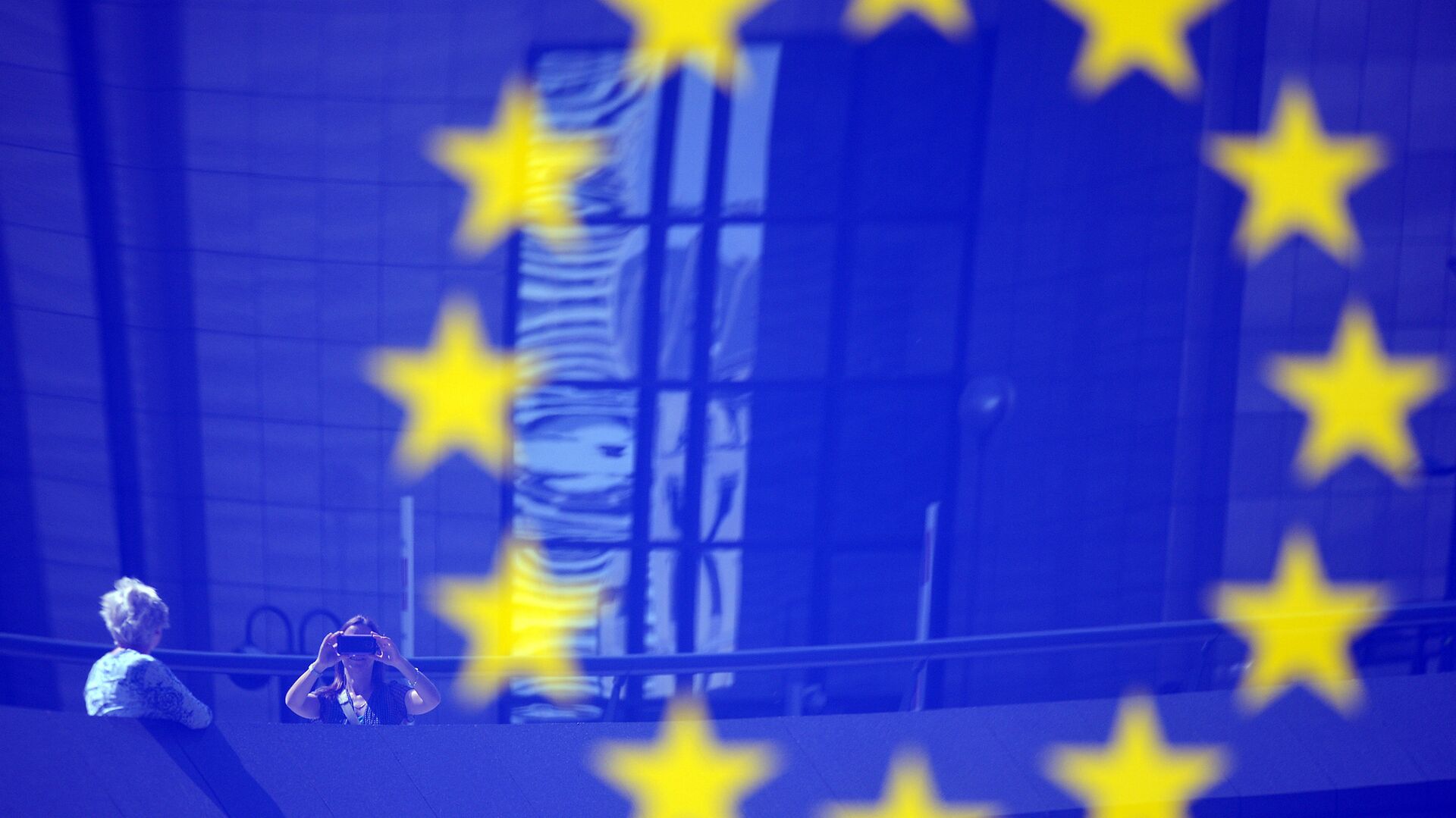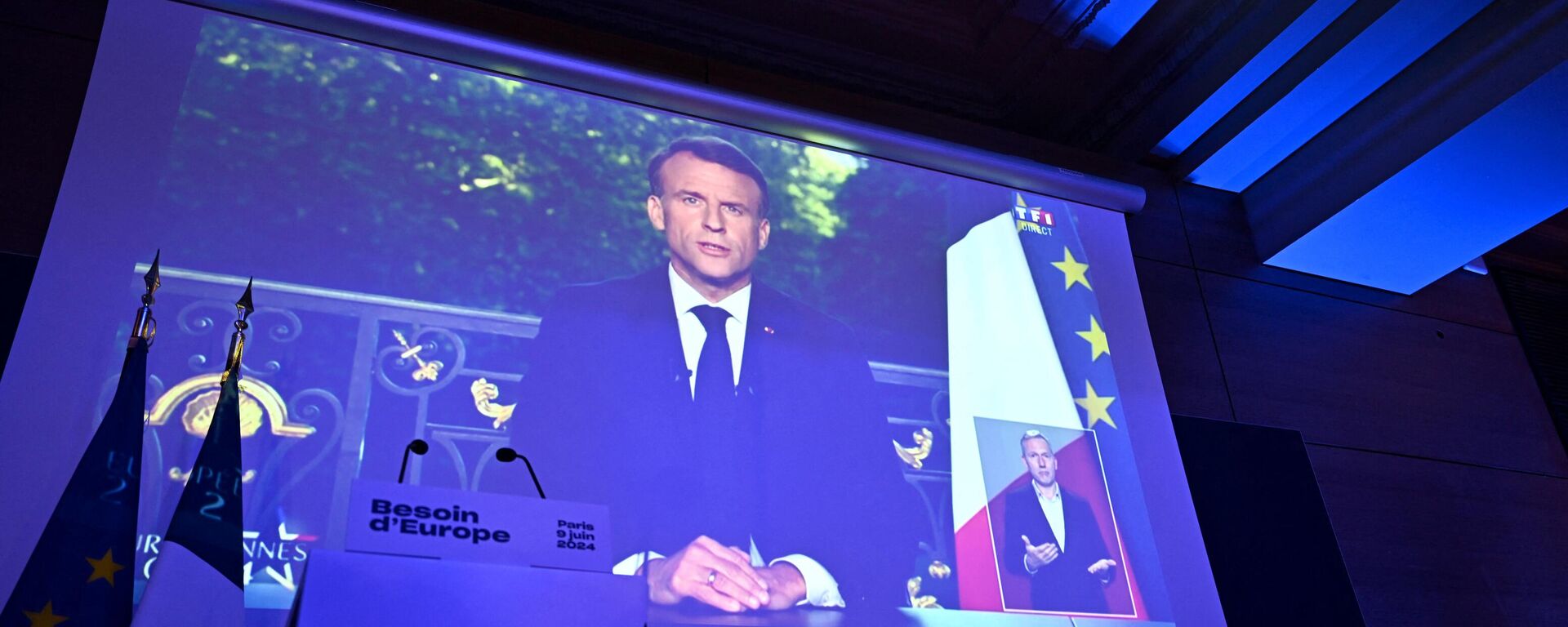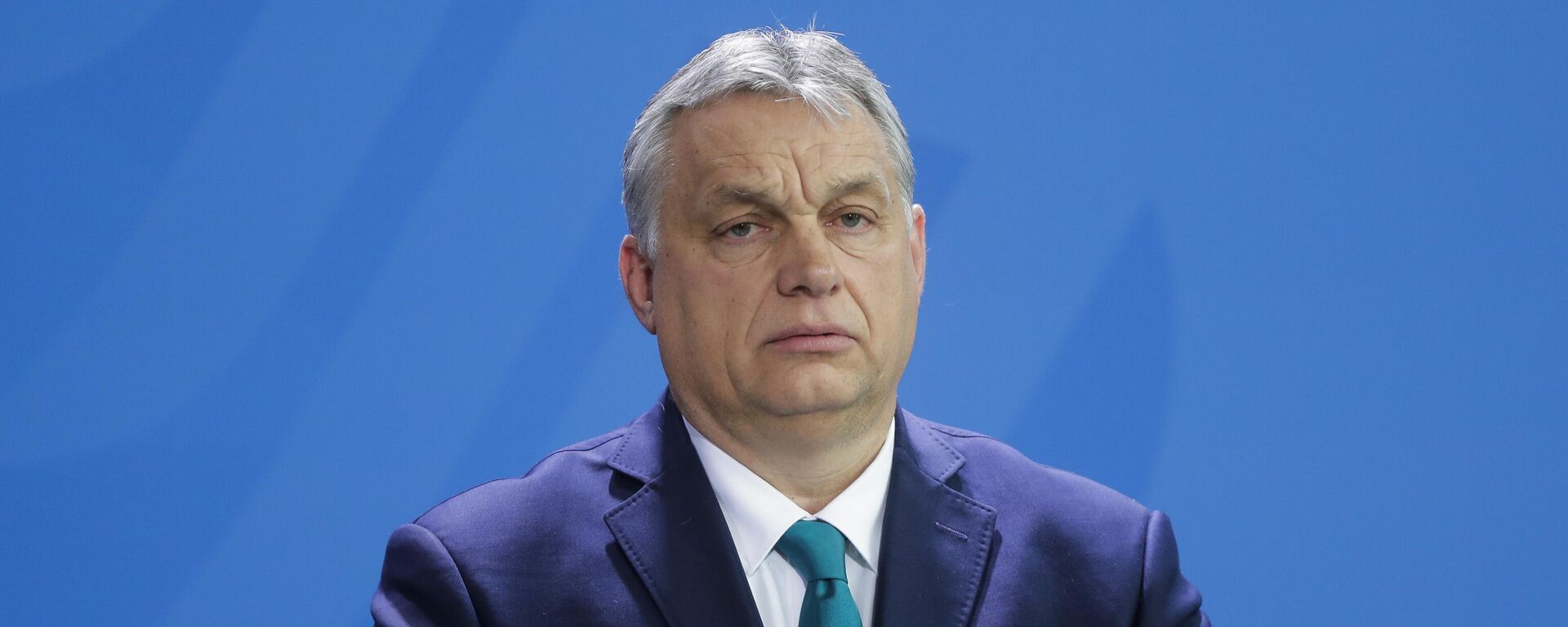Eurosceptic Party Wins Expose Growing Rift Between EU Public and Governments
19:12 GMT 10.06.2024 (Updated: 19:24 GMT 10.06.2024)

© Sputnik / Alexey Vitvitsky
/ Subscribe
The outcome of the European Parliament elections shows that Euroscepticism is gaining strength across the bloc as weak economic growth, migration problems and the Ukraine crisis continue to haunt Europe.
The fallout from NATO's proxy conflict in Ukraine has helped Europsceptic parties make major gains in European Parliament elections, says an MEP.
While the mainstream conservative European People's Party (EPP) remains the largest group in the assembly, Eurosceptic parties made serious gains across the bloc just as polls predicted.
"It reflects the extremely poor economic situation in Europe generally as a result of several factors - the EU's disastrous climate agenda [and] the worsening migration problem," Dr. Gunnar Beck, outgoing Member of the European Parliament (MEP) for the Alternative for Germany Party (AfD), told Sputnik.
"I think the war in Ukraine also featured, but I think primarily in terms of the impact on living costs in Europe," he stressed. "But there's also rising fear of a general war."
Parties opposed to greater Euro-federalism and war made gains across
France: the conservative National Rally (RN) gained around 31.5 percent of the vote – more than twice that of President Emmanuel Macron's Renaissance party – prompting the president to call a snap legislative election.
Italy: Brothers of Italy (Fratelli d'Italia) has expanded its presence in the Euro-parliament with 28.8 percent of the vote.
Germany: the Alternative for Germany (AfD) has become the second largest party after Christian Democratic Union (CDU)/Christian Social Union (CSU) coalition with 15.9 percent of the vote, inflicting a heavy blow on Chancellor Olaf Scholz's Social Democrats (SPD).
Spain: Eurosceptic anti-establishment party The Party is Over (Se Acabó la Fiesta) made history by winning three seats in the parliament.
Bulgaria: The Eurosceptic anti-NATO Revival Party also managed to enter the parliament with three seats.
News website Politico said two alternative-right coalitions – the European Conservatives and Reformists (ECR) and the Identity and Democracy (ID) group – have gained 131 seats, not counting the AfD's 15 MEPs, the Hungarian Fidesz party's 10, the Polish Confederation party's six MEPs, and the Bulgarian Revival's three representatives.
If those parties formed a single group it would be one of the largest forces in the EU Parliament, second only to the EPP, the site calculated.
The New York Times noted that that new right-wing parties currently rule alone or as part of coalitions in seven of the bloc's 27 countries.
"The results clearly show that more and more citizens in the EU member states are dissatisfied with the policies of the Brussels political commissioners," Dr Christian Blex, an AfD member of the North Rhine-Westphalia state parliament, told Sputnik.
"The catastrophic eco-religious energy policy is increasingly destroying people's economic livelihoods. The massive poverty immigration promoted by the globalist parties continues unchecked," Blex said. "The situation in the EU member states is becoming increasingly difficult for ordinary citizens. I therefore think that the trend towards voting for non-woke, conservative-patriotic parties will continue."
According to Blex, there is "an ever-increasing discrepancy between the warmongers in governments and the population" amid the Ukraine conflict.
He noted that France exemplified the trend with the crushing defeat of Macron's party just weeks after the French president proposed sending NATO troops to Ukraine.
"The desire for peace is also very clear in Germany," Blex continued. "The AfD, which has always advocated a peaceful dialogue with Russia, has clearly won. The new Sahra Wagenknecht Alliance (BSW) has also had success with its criticism of the government's Russia policy."
But the growing support for Eurosceptic parties does not mean the EU will see a change of direction, according to Beck. While the centrist EPP Group is still the strongest force in the European Parliament it is unlikely that the bloc's strategy will change in the foreseeable future, the pundit argued.
European Commission President Ursula von der Leyen, a member of EPP affiliate the CDU, is seeking MEPs' approval for a second term at the head of the EU's executive.
Politico reported that she could be able to rely on the social-democrat and liberal grpoupings as well as her own faction.
Manfred Weber, the leader of the EPP, called on European leaders to support von der Leyen for five more years. Beck warned that a second mandate for UVDL would make it unlikely that the bloc's foreign policy would change — especially its militarization of Ukraine.
"If Mrs. Von der Leyen is re-elected, I suspect she probably will be, I think we are not going to see a very different approach under her," Beck said. "But that doesn't just apply to the situation in Ukraine. It also applies to the other disastrous policies Von der Leyen has pursued."
"I think we are not going to see any drastic change of direction in any of these respects, not the kind of change that's necessary to restore Europe's economic fortunes and infuse an element of dynamism into our economy," he added. "Europe has simply lost out too much. It's totally uncompetitive, compared to the US and Eastern Asia now. Europe is, I think, in decline."


